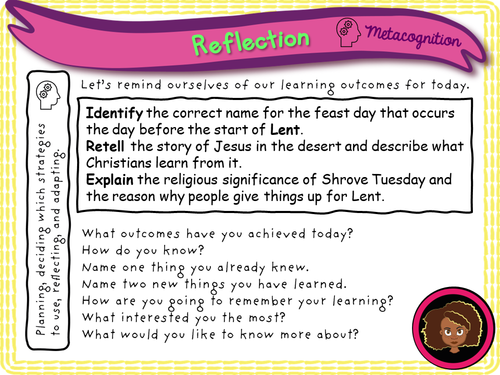Why Do We Celebrate Shrove Tuesday? The Story Behind Pancake Day

Table of Contents
The Religious Origins of Shrove Tuesday
The name "Shrove Tuesday" itself holds a clue to its origins. "Shrove" comes from the word "shrive," meaning to confess. Historically, Shrove Tuesday was the day before Ash Wednesday, the beginning of Lent, a period of fasting and penance observed by many Christians. It was a time for confession and cleansing of sins before embarking on the Lenten season.
- The Significance of Lent: Lent, lasting 40 days, commemorates Jesus Christ's 40 days of fasting in the desert. During this period, Christians traditionally abstain from certain foods and pleasures as a form of spiritual discipline.
- Using Up Rich Ingredients: Before the onset of Lent's restrictions, people would use up rich ingredients like eggs, milk, butter, and sugar, which were often avoided during the fasting period. Pancakes, a perfect way to use these ingredients, became a central part of the Shrove Tuesday celebrations.
- The Pancake Bell: In many areas, the ringing of a "Pancake Bell" signaled the start of Shrove Tuesday, urging people to participate in the festivities and consume their rich foods before the Lenten fast began. This tradition, while fading in many places, still holds symbolic meaning in some communities.
The Evolution of Pancake Day Traditions
Over time, the focus of Shrove Tuesday shifted from its purely religious observance to a more secular celebration. While the tradition of confession remains important for many, the enjoyment of pancakes and festive activities has become the primary focus for a vast majority of people.
- Global Variations in Pancakes: The humble pancake transcends borders, taking on various forms and flavors around the world. From the delicate crêpes of France to the fluffy American pancakes, and the savory varieties found in many cultures, the diversity in recipes reflects the global reach of this celebration.
- Pancake Races and Festive Activities: Shrove Tuesday has given rise to various fun and competitive events, most notably pancake races. These races, often involving running while flipping a pancake in a frying pan, have become popular traditions in many towns and villages, adding an element of playful competition to the festivities.
- Commercialization of Pancake Day: In modern times, Shrove Tuesday has become increasingly commercialized, with themed events, special pancake menus at restaurants, and an abundance of pancake-related products flooding the market.
Regional Variations in Shrove Tuesday Celebrations
The traditions surrounding Shrove Tuesday vary significantly across different regions and cultures.
- Olney Pancake Race, England: This famous race is perhaps the most iconic example of Shrove Tuesday festivities, attracting participants and spectators from around the world.
- Crêpes in France: In France, Crêpes, thin pancakes, are a staple of Mardi Gras (which is often synonymous with Shrove Tuesday) celebrations, frequently enjoyed with a variety of sweet and savory fillings.
- Global Pancake Recipes: From the Poffertjes of the Netherlands to the Okonomiyaki of Japan, diverse cultures have their own unique takes on pancakes, showcasing the adaptable nature of this simple yet versatile dish.
Shrove Tuesday in Modern Times
Today, Shrove Tuesday continues to be a cherished day for family and community gatherings. While the religious significance might be less pronounced for some, the tradition of making and sharing pancakes remains a powerful symbol of togetherness and festive spirit.
- Family Pancake Making: Many families gather to make pancakes together, creating lasting memories and sharing recipes passed down through generations. This intimate aspect retains a sense of tradition and continuity, connecting modern celebrations with the past.
- Community Events: Numerous communities organize pancake-themed events, often involving pancake-eating contests, fundraising activities, and local markets. These collective celebrations foster a sense of community and shared joy.
- Social Media Influence: Social media platforms are awash with pancake creations during Shrove Tuesday. Users share their unique recipes, innovative pancake art, and experiences, creating a vibrant online community around this culinary tradition.
Conclusion
Shrove Tuesday, or Pancake Day, is a celebration with roots stretching far back into history. From its religious origins as a day of confession and preparation for Lent to its current status as a widely celebrated secular festival, Shrove Tuesday has evolved while preserving its essence of community, tradition, and deliciousness. This journey from religious observance to global culinary festivity demonstrates the enduring appeal of sharing food and fellowship. So, this Shrove Tuesday, grab your whisk and embrace the delicious history of Pancake Day! Celebrate Shrove Tuesday by exploring the rich traditions and delightful recipes behind this beloved Pancake Day!

Featured Posts
-
 Extreme V Mware Cost Increase At And T Highlights Broadcoms 1 050 Price Jump
May 02, 2025
Extreme V Mware Cost Increase At And T Highlights Broadcoms 1 050 Price Jump
May 02, 2025 -
 Poppy Atkinson Funeral Held For Manchester United Fan After Fatal Accident
May 02, 2025
Poppy Atkinson Funeral Held For Manchester United Fan After Fatal Accident
May 02, 2025 -
 Het Probleem Van Overvolle Tbs Klinieken Oplossingen Nodig
May 02, 2025
Het Probleem Van Overvolle Tbs Klinieken Oplossingen Nodig
May 02, 2025 -
 Toronto Firms Bid For Hudsons Bay Challenges And Prospects
May 02, 2025
Toronto Firms Bid For Hudsons Bay Challenges And Prospects
May 02, 2025 -
 A Generations Wellbeing The Importance Of Investing In Childhood Mental Health Now
May 02, 2025
A Generations Wellbeing The Importance Of Investing In Childhood Mental Health Now
May 02, 2025
Latest Posts
-
 Fridays Winter Weather School Cancellations And Trash Pickup Schedule Changes
May 03, 2025
Fridays Winter Weather School Cancellations And Trash Pickup Schedule Changes
May 03, 2025 -
 School Closings And Trash Collection Affected By Fridays Snow And Ice
May 03, 2025
School Closings And Trash Collection Affected By Fridays Snow And Ice
May 03, 2025 -
 Winter Storm Warning Four Inches Of Snow And Dangerous Cold Tuesday
May 03, 2025
Winter Storm Warning Four Inches Of Snow And Dangerous Cold Tuesday
May 03, 2025 -
 Prepare For The Cold Four Inches Of Snow And Bitter Temperatures Expected Tuesday
May 03, 2025
Prepare For The Cold Four Inches Of Snow And Bitter Temperatures Expected Tuesday
May 03, 2025 -
 Severe Winter Weather Alert Four Or More Inches Of Snow Freezing Temperatures
May 03, 2025
Severe Winter Weather Alert Four Or More Inches Of Snow Freezing Temperatures
May 03, 2025
